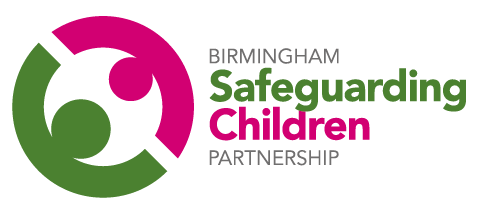Learning Lessons from Child Safeguarding Practice Reviews (CSPRs)
Date & Time:
Tell me about future dates of this event
Venue:
Detail:
If this course is virtual, a link will be sent before the course start date direct from the trainer (2Hills)
This course will focus on the learning from: Child Safeguarding Practice Reviews (and where applicable the previously named ‘Serious Case Reviews’) - "Don’t just rely on assurances from parents…be curious, seek evidence" and safeguarding risks faced by adolescents, based on learning from the National Working Group (NWG). This course is Case Study based so please arrive promptly to facilitate everyone’s learning.
Target Group: Level 3/Health 3
This course should be attended by Front Line Workers, Supervisors/Managers, qualified and newly qualified Social Workers, Youth Workers, Police, Family Support Workers, Housing Officers, Health Visitors, Midwifery, General Practitioners, Senior Education Staff, Early Years Staff, Play Leaders, Foster Carers and all those who are working, or in contact with children, young people and their families and those whose organisation could be affected by Child Safeguarding Practice Reviews /learning lesson reviews.
What are Child Safeguarding Practice Reviews?
Whenever a child dies or is seriously harmed and abuse or neglect are known or suspected, Birmingham Safeguarding Children Partnership has a statutory duty to:
- Review the involvement of all agencies who were involved with the child and their family.
- Explore how agencies work together and consider improvements to strengthen the way in which
- local professionals and agencies work together to safeguard and promote the welfare of children to
- deliver better outcomes.
- Where there are lessons to be learnt, CSPRs play a pivotal role in improving multiagency working, this includes recognising and embracing good practice as well as identifying and seeking solutions for improvements.
Aims:
To identify recurrent and new learning drawn from CSPRs (local and national) as well as recent
reports/research. Using case studies to illustrate themes and highlight apparent systemic/practice failures to assist learners to imbed the learning in their own practice and in multi-agency working.
By the end of the session delegates will have informed their practice on a wide range of key safeguarding issues based on identified learning from local and national cases.
Case Study 1
Based upon CSPR 2017-2018/01, we will consider and develop learning around the following key areas:
- Understanding the addictive nature of drug and alcohol dependency and the importance of
- structured, focussed, regular intervention from experienced professionals.
- Recognising the importance of regular drug testing and some of the potential pitfalls in such tests.
- Understanding the challenges of a substance- misusing individual controlling such behaviour and the skill required by professionals in identifying behaviours of Disguised Compliance/Non-compliance.
- Developing your professional curiosity to help recognise instances of disguised compliance.
Case Study 2
We will consider safeguarding risks faced by adolescents. The study is based on learning from the NWG (National Working Group).
- Child Criminal Exploitation (CCE).
- Impact of Coercive Control within the home.
- The importance of working with the family to reduce risks from wider harm.
- The need for respectful uncertainty when working with resistant families.
- The impact of negative childhood experiences upon children’s physical, cognitive, social, emotional and behavioural development.
- The importance of Contextual Safeguarding, recognising where risk is coming from and tailoring and
- coordinating the response to meet a young person’s experience of harm beyond the family
- The concept of ‘consent’ and influences on its validity in relation to children and young people. (Socially Abused Consent)
For our virtual courses…
- Virtual Courses will take place via Microsoft Teams and - to a lesser extent – Zoom.
- Please read the course information, confirmations and any follow up emails carefully during and after your booking process, and follow the instructions for receiving or locating the link to the course. Virtual courses have been re-designed from their usual face to face format, and so some alterations such as the requirement to complete pre-course work (in some instances) are in place for you.
- If your organisation allows it, Microsoft Teams should be downloaded on your device and you should know how to use it prior to training.
- For staff who cannot download Zoom (eg Birmingham Children’s Trust Staff), it will not be necessary to download the Zoom program in order to attend the virtual session.”
When joining a Zoom call:
- Join the call using a browser (internet explorer or Edge) – you must not download the Zoom software
- You must not transfer information to the group on the call (such as files etc.) via Zoom.
- If this is a new partner you are working with you may need to consider if attendees are required to complete a confidentiality agreement (this is separate from the use of Zoom etc.)
It is very important that if you book a place but later cannot attend that you cancel your place at least 5 days before the event date. This will enable the place to be offered to delegates on the waiting list and will avoid any non attendance charges being made to your organisation. Cancellation requests outside of 5 days should be emailed to bscp.contactus@birminghamchildrenstrust.co.uk;
